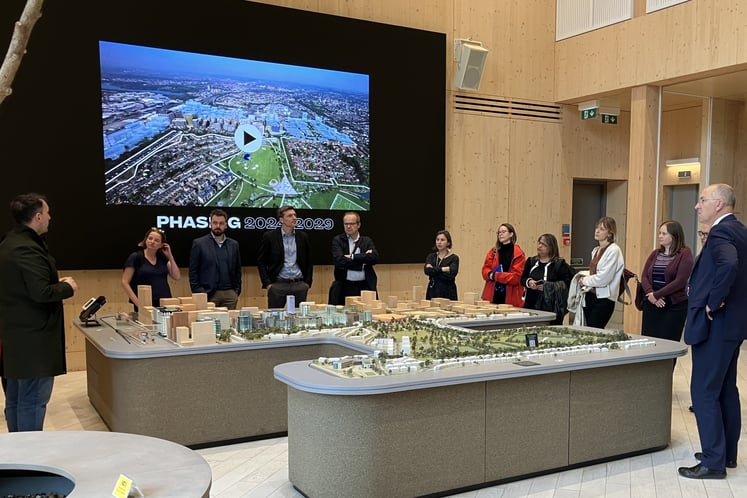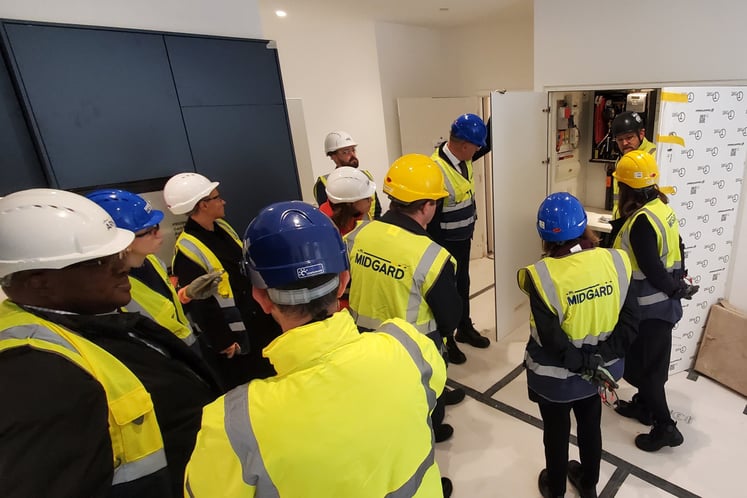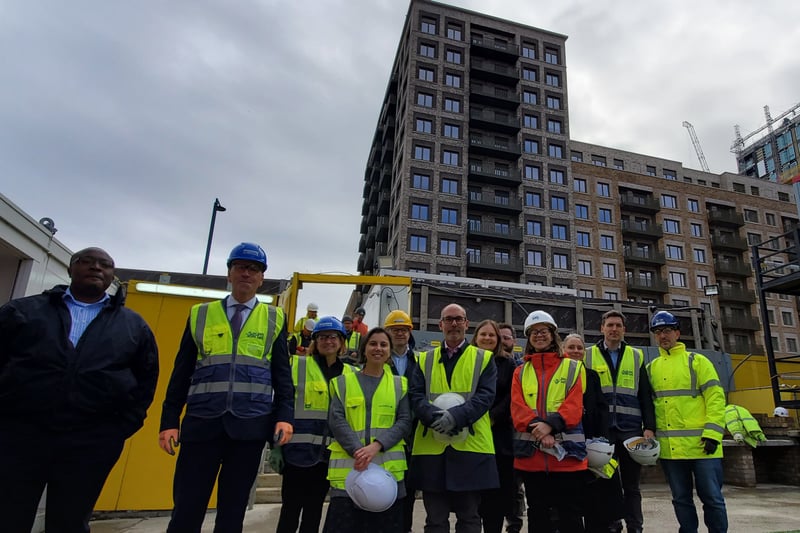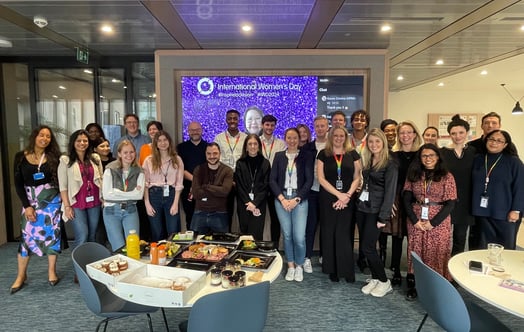We were delighted to host Ofgem, the Greater London Authority and London Councils at Brent Cross Town earlier this month. With our partners, Related Argent and Barnet Council, we discussed the role of heat networks in delivering the Mayor of London’s goal for the city to be net zero carbon by 2030.

Earlier this month, we were delighted to welcome Ofgem, the Greater London Authority and London Councils to the Brent Cross Town development in north London.
The visit centred around Brent Cross Town’s heat network – which is designed and operated by Vattenfall, the role of heat networks in decarbonising London, and what’s needed in future heat network regulation.
The visit was facilitated by Barnet Council and real estate developer Related Argent who are working together to create Brent Cross Town, a new neighbourhood in north London.
Brent Cross Town
During the visit, the delegation toured the Brent Cross Town site and had the opportunity to view a future customer’s home, seeing first-hand the heat network equipment which will deliver low carbon heat to residents. The delegation also learned about the all-inclusive maintenance services that Vattenfall provides to its customers.
Up to 6,700 homes at Brent Cross Town will receive heating and hot water from the heat network, alongside over three million square feet of commercial space. Cooling will also be delivered to some plots. Our first customers are expected to move in and join the heat network in the coming months.

The delegation also toured Brent Cross Town’s temporary energy centre. Using gas boilers, the temporary energy centre will provide heating to customers at Brent Cross Town while the construction of the main energy centre takes place. Once the main energy centre is operational (expected in 2027), it will form one of the largest all-electric energy centres in Europe. It will take over supply to the whole development, delivering low carbon heating and cooling using technologies such as air source heat pumps, electric boilers, chillers and thermal stores.
Realising net zero in London
The Mayor of London set a target for the city to reach net zero carbon by 2030. To achieve this, the Accelerated Green pathway identified that 460,000 buildings in London must connect to heat networks by 2030. The delegation learned how the heat network at Brent Cross Town is similarly enabling Brent Cross Town’s net zero goals. The development has made a pledge to reach net zero carbon by 2030 with the development-wide heat network a key enabler of this target.
Accelerating deployment through regulation
The visit also featured a roundtable discussion which examined the future of heat network regulation. In 2023, Ofgem was named by the UK government as the future regulator of heat networks across Great Britain. Ofgem is expected to take on this role in 2025.

All smiles post site visit at Brent Cross Town.
The delegation discussed the learnings and challenges they had encountered in the heat network sector and how regulation could accelerate the deployment of heat networks.
Key takeaways from the roundtable session included:
- Putting customers at the heart of design: The importance of a good customer journey, and how early conversations with customers set to join heat networks are crucial to build trust and confidence.
- Community participation: The community benefits that heat networks can bring, and how the heat network sector can collaborate with community groups who want to play a role in heat decarbonisation.
- Standardisation through regulation: Regulatory frameworks could introduce contractual agreement standardisation and reduce the time, resource, and money spent in the early developmental phases of projects. However, a suitable balance needs to be found between principle-based and prescriptive regulation to suit different parties.
- Zoning: The role of zoning to support the identification of heat network zones. The need for zoning methodology to be consistent across boroughs to enable collaboration and flexible to adapt to individual boroughs’ needs.



